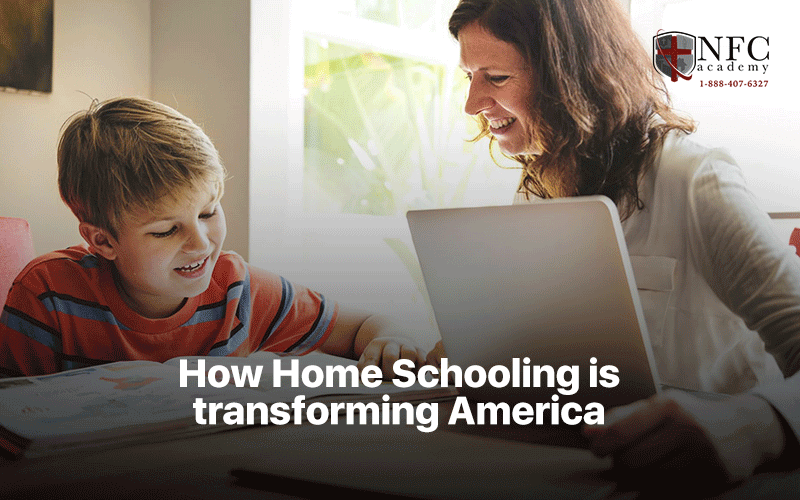Homeschooling in America is a different ball game altogether, and you need to know why. It does away with international education standards, and makes education more accessible.

Today, more people are homeschooled in the U.S. than ever before. It’s not that students are unable to cope with academic pressure or the tough schedules, but it’s that they need a bit of their own space and mental stability that they can only get if they’re studying within their comfort zone. Recent statistics from the American Institute of Research suggest that there’s a subsequent increase in homeschooling in the USA as of late. Parents also are happier as their children can learn more efficiently and effectively while at home, since they don’t have to endure daily commutes.
Homeschooling has also reduced negative peer pressure and other psychological stresses that are a part of the traditional schooling environment, and is also safer. It effectively counters several major issues that most schools face today, such as shootings, drugs, sexual harassment, and bullying. Education is also more accessible for children with special needs, and extra shy kids as well because of homeschooling and distance learning. Some of the most significant benefits of homeschooling in the US today include:
- Improving student morale.
- Curtailing abuse and bullying.
- One on one teaching and individual attention.
- Encouraging more hands-on, non-traditional learning through online coursework and certifications.
- More accessibility to education for children with special needs.
Here’s all you need to know about the homeschooling revolution in America.
Early Trends
Until the late 19th and 20th century, homeschooling was on the decline, but before that, it was quite common and home tutors were very popular among the upper classes. However, the practice was still observed in many isolated communities for a long time. In the late 19th century, the United States passed compulsory school-attendance laws for students that made it necessary for all children to be physically present at public or private schools. This is how traditional education came to be. By the 1970s, a well-known American educationist, John Holt, challenged the formal school system and as a replacement, offered alternative education centers of excellence. Gradually, this trend was adopted by a group of parents who wanted to try out this private alternative for education. As a result, a considerable amount of students were initially removed from traditional schools. In the mid-1980s, there were a number of registered homeschooling families, and that number kept growing until 20 U.S states legalized homeschooling. To support this, the active partners of the homeschooling movement, such as the Home School Legal Defense Association carried out the necessary legal framework for those families and the future of the alternative teaching methodology was made secure.
Important Reasons for Homeschooling
Living in a digital world where homeschooling is the smartest way to teach kids today, it has a lot more to offer than just better access to education. Homeschooling has made the learning experience for kids far better than it used to be. Now, it’s a mainstream learning methodology that is rapidly growing in popularity.
New Homeschooling Trends
Ever wonder what triggered such interest in homeschooling? The rapid evolution of education technology has facilitated distance learning and homeschooling very significantly. For example, online charter schools use remote, online lectures and let students work and study from home. It was also found that 11 percent of the charter schools have an always-online instruction program, which the students have access to whenever they need it.
The Landscape of Home School in the USA
There have been numerous debates about whether online homeschooling in the USA is good for children with special needs. While some argue that it would prove to be very useful, there are others that insist that a more traditional classroom environment would help those children get used to society better.
Nevertheless, the general consensus is that homeschooling is making children more responsive, more creative, and generally better at academics. Whether it will eventually replace traditional classrooms remains to be seen though, and only time can tell that.
